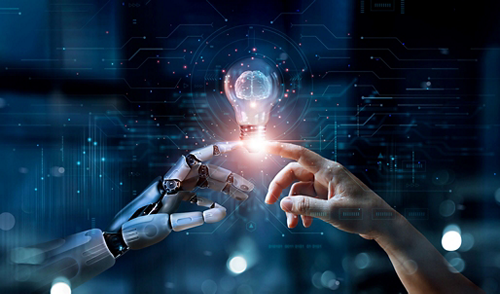
Robot overlords, sentient computers, and digital Armageddon—these are the fears that often come to mind when thinking about artificial intelligence (AI). However, these dystopian visions vastly misrepresent the technology that we see and use today. AI, in reality, is a suite of technologies like machine learning, supervised learning, and computer vision, enabling companies to automate tasks at an unprecedented scale.
Contemporary AI is already deeply integrated into our daily lives through devices such as Amazon's Alexa, Google Home, and Apple's Siri. These systems are designed not to be independently intelligent but to excel at "smart" interactions, acting as guides, assistants, and memory extensions. The AI we experience today is far from the omniscient superintelligence feared in science fiction.
There are genuine concerns about AI, such as job displacement, advanced weaponry, and new ways for humans to harm each other, as noted by CNET senior editor Stephen Shankland. However, these risks are often overstated in popular media. AI's real-world applications are more about enhancing and streamlining tasks rather than taking over the world.
For instance, in the automotive industry, AI plays a crucial role in the development of self-driving cars. These vehicles use supervised learning to adapt to ever-changing real-world conditions. "A self-driving car knows how to avoid a pedestrian and knows how to stay in a lane because humans have sat down with images taken from the front of these cars and said, 'this is a human, this is a lane that marks the edge of the road,'" explains Rob Munro, CTO of Figure Eight. This human feedback is essential in training AI to automate driving tasks safely.

In healthcare, AI is making significant strides through computer vision, a process that allows AI to interpret symbols and images. This capability provides vital support to physicians and radiologists in diagnosing severe conditions such as heart diseases and cancers. Fabian Becker, CEO of Arterys, highlights that AI can propose diagnostic suggestions to physicians much faster than traditional methods, potentially saving lives by speeding up the diagnosis process.
The agriculture industry also benefits from AI, particularly through machine learning and computer vision. AI helps farmers and ranchers identify weeds, select fields, and optimize planting times. Jorge Heraud, CEO of Blue River Technology, discusses how their AI-enabled machine can differentiate between crops and weeds with high accuracy, applying herbicides only where needed, thereby optimizing resource use and improving crop yields.
Quantitative futurist Amy Webb emphasizes that the fear surrounding AI often stems from its close ties to how our brains work and how we think. The sci-fi scenarios of robot overlords and superintelligent machines originate from a fear of the unknown. Webb points out that as AI becomes indispensable, it becomes invisible, seamlessly integrating into our everyday lives without us even realizing it.

As AI continues to evolve and integrate into various sectors, it's essential to understand its capabilities and limitations. At Directpath Global Technologies (DGT), we recognize the transformative potential of AI. As a Managed Security Service Provider (MSSP), we offer a range of services, including MTD, XDR, VAPT, SOC2, VRMaaS, WAF, and vCISO. Our advanced Artificial Intelligence Division tailors services to meet the unique needs of organizations, enhancing not only cybersecurity but also various operational aspects.
AI is not about creating sentient machines to take over the world but about leveraging technology to improve efficiency, accuracy, and safety in our daily lives. By understanding AI's true nature and applications, we can better appreciate its benefits and work towards mitigating its risks responsibly. Source: CBS News
.png)
Opmerkingen